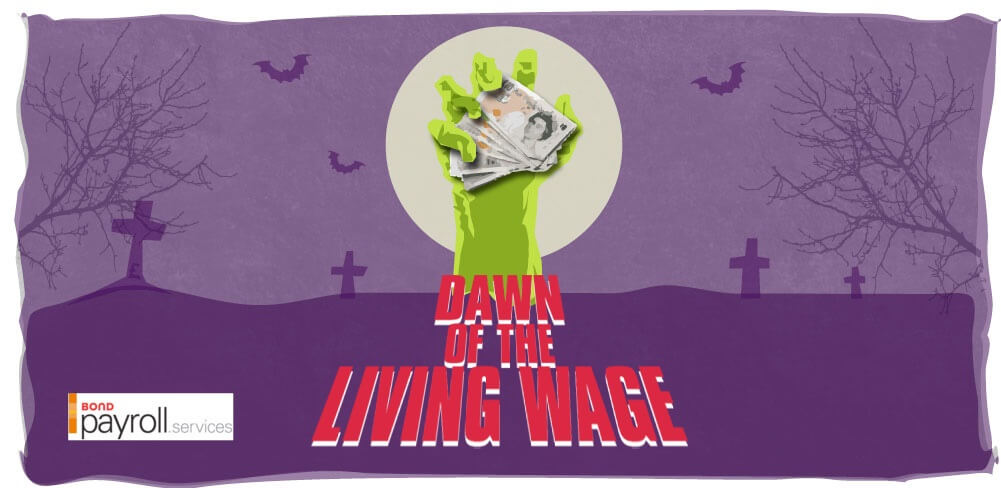7th July 2016

The world is not what it once was. On April 1 2016, the National Living Wage came into effect, and only those who were prepared for the horde of legislative changes remain. Unemployment has fallen and now a tide of workers cover the land. But in shopping centres across the country, the retail market is under threat.
Workers over the age of 25, and not in the first year of an apprenticeship, now enjoy a minimum of £7.20 an hour. From its very inception, 1.3 million workers were affected by the change that rocked the bottom lines of businesses across the country. By 2020, the Living Wage will have increased to £9 per hour.
So, what does the post-Living Wage world look like to the survivors out there, and will Brexit provide an antidote for business?
Impact On Jobs & Pay
According to the Office of National Statistics, unemployment fell to 5% at the beginning of the year, the lowest rate since October 2005. Its figures show that the number of people in work rose by 55,000 and thanks to the rise of the Living Wage, annual pay growth was up 2.5% compared to 1.9% in March. This inflated pay growth marks the biggest rise since August last year.
Despite this, job opportunities in the retail sector are expected to drop to their lowest level for five years as retailers try to balance the books against the Living Wage. Around one third of retailers plan to reduce the number of new positions, according to a survey by recruitment firm Manpower.
“They’re Rising Too Rapidly!”
In the immediate wake of the National Living Wage, businesses had to figure out ways to off-set the cost of raising the pay of so many employees. Across the UK, 1.3 million workers benefited from the National Living Wage, not to mention all future workers that might be employed. Many of these strategies were later condemned by George Osborne being not “in keeping with the spirit of the law”.
The big players in cut-throat world of supermarkets were all watching each other like hawks, seeing who would make the first move. The first supermarket to pass the cost of the National Living Wage to its customers by raising prices would be the first to fall as the others undercut them and reaped the profits.
This lead many of them, including Waitrose and Morrisons, to cut staff benefits in order to cover the costs. Sunday pay, Bank Holiday pay and similar benefits were cut, in addition to other non-salaried benefits. Marks & Spencer made similar cuts, leaving around 11,000 staff up to £2,000 a year worse off.
“We Have No Idea What’s Out There!”
With the recent referendum decision rocking markets and casting all aspects of business into uncertainty, companies will naturally look inwards to shield themselves against any financial fallout. In addition, the 2.2 million EU workers in the UK will be living in job insecurity until legislative measures are put in place. This will put further pressure on businesses to balance making profits and paying wages in an increasingly insecure marketplace.
Getting Out Alive
After B&Q’s decision to slash benefits resulted in a petition reaching the House of Commons, businesses are becoming more aware of the potential PR fallout that could come from drastic action. Rather than just cutting incentives and pay, businesses must reform their reward schemes with their employees approval. Many employees have an emotional attachment to their workplace benefits, so it is important to keep everyone in the loop when considering change.
Companies need to optimise their spend across the board, not just in benefits and compensation. Saving money by outsourcing non-critical operations and redefining job roles to streamline departments will inject new capital into the business. By employing fewer staff on a higher wage doing higher-value work, employers get more from their investment in people, while simultaneously giving the employee a greater sense of engagement and job satisfaction.
Companies should also review their reward schemes rather than simply spreading them out thinly. One solution would be to move away from everyone getting the same pay award annually to being more discerning, and using this to improve talent retention. A bonus should not be an entitlement at the same time each year, and could be given on a more ‘spot’ approach, which has a more motivating impact. Or consider replacing benefits that cost the business money with benefits that offer a great deal of less tangible value, like an extra day’s holiday a year.
It’s a dangerous and confusing time for businesses of all sizes. The National Living Wage was just the first wave of legislative challenges this year. Having survived this, they must galvanise their defences in the face of the new lurking danger – the post-Brexit world.


